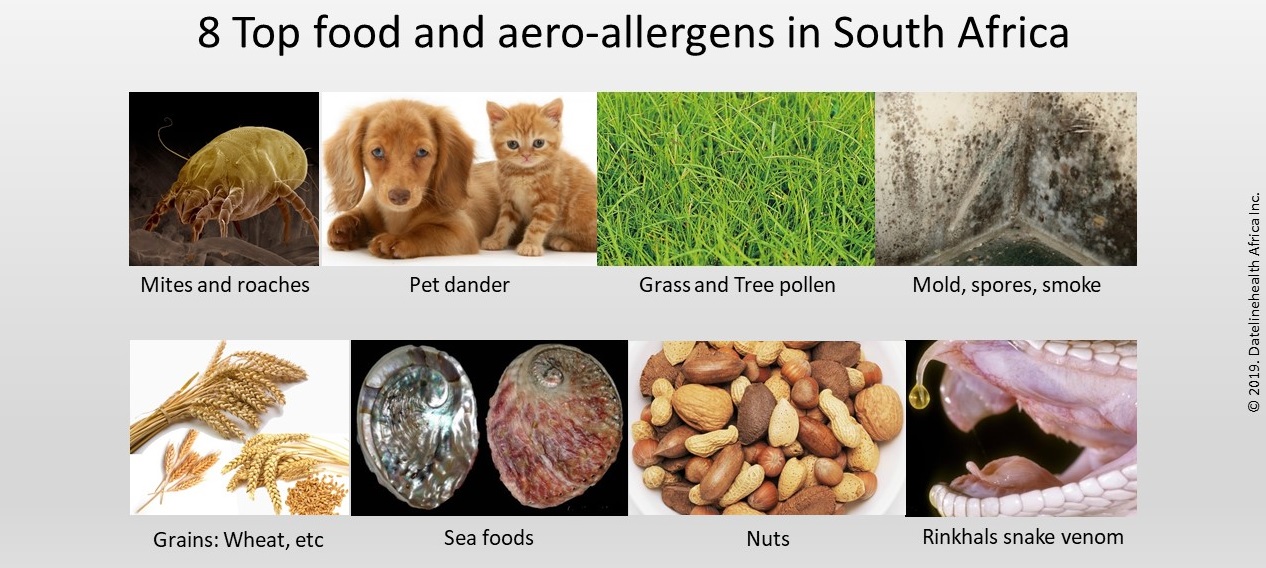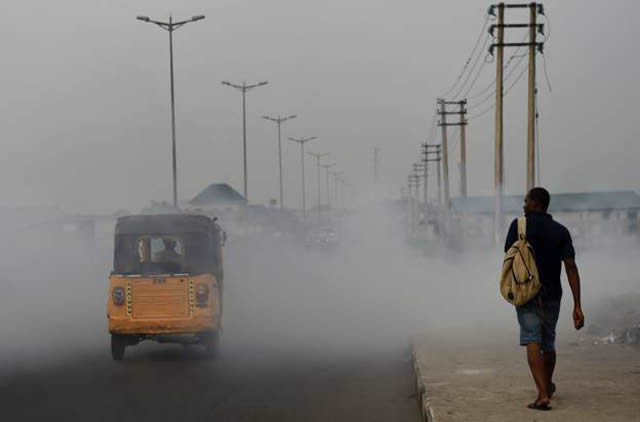
The role of our immune system is to fight harmful germs so as to keep the body healthy.
The way this mechanism typically works is that the immune system attacks any foreign substance that it thinks could be dangerous to our body. However, our immune system is also designed to adjust to our environment; i.e. if our body encounters something that is not harmful, our immune system may automatically recognize that substance as being ‘not harmful’.
Many a times however, our immune system does respond to foreign substances that are not typically harmful to our body. It perceives them as outside invaders threatening the body and attacks them.
The response of the immune system to such harmless foreign substances is termed as ‘allergy’ and the substances as ‘allergens’.
Allergens may include certain foods, pollen, or pet dander. Depending on the allergen, the response of the immune system may involve sneezing, difficulty breathing, hives, inflammation, or other similar symptoms.
In Africa, people are exposed to many risk factors that can trigger allergic reactions.
Such factors include foods, mold spores, animals and birds, stinging insects, house dust mites, and aero-allergens like smoke and pollen.
Africa is witnessing a rise in the number of cases of allergy. While getting more prevalent, allergies and asthma are also getting more severe. For example, Nairobi, Cape Town, Ivory Coast, and other areas have asthma rates of 18-20 percent.1
Several factors determine what symptoms one will experience because of allergies. These include the type of allergy one has and the severity of the allergy.
It may take a while for someone to realize that he or she has a food allergy. Therefore, it is always wise to see a medical professional if you have a serious reaction after a meal. Allergies due to food may trigger symptoms such as swelling, fatigue, nausea, and hives.
Symptoms of hay fever are exactly like those of a cold. They include swollen eyes, runny nose, and congestion.
Severe allergies can cause anaphylaxis, which is a life-threatening emergency. It can lead to itchy skin and rash, lightheadedness, breathing difficulties, and loss of consciousness. It is highly advised to seek medical help if you’re experiencing these symptoms after coming in contact with a possible allergen.
The excat causes of allergies are unknown.
Genetics probably plays a role in allergies. That is to say, allergies can be passed down from parents to their children. However, specific allergies aren’t passed down and only a general predisposition to an allergic reaction is genetic.
Animal products such as pet dander, dust mite, and cockroaches.
Plants – The most common plant allergens are pollens from grass, weeds, and trees, and resin from plants such as poison ivy and poison oak.
Drugs such as penicillin and sulfa drugs are common triggers.
Foods - Allergies due to wheat, nuts, milk, shellfish, and egg are common.
Insect stings by bees, wasps and mosquitoes. Also vernom from snake bites
Mold – An allergic reaction can be triggered by airborne spores from the mold.
Other allergens - Smoke, metals like nickel and latex that is often found in latex gloves and condoms are also common allergens.

Smog in a Nigerian city
Staying away from the triggers is the best way to avoid allergies. However, that is not always possible and for such situations, treatment options thar are available include:.
Over-the-counter or prescription medications (often antihistamines) are used to control the symptoms of allergies. The severity of your allergy will be considered by your doctor while recommending any kind of medication.
Allergy medications include:
Antihistamines like diphenhydramine (Benadryl)
Corticosteroids
Cetirizine (Zyrtec)
Loratadine (Claritin)
Cromolyn sodium (Gastrocrom)
Decongestants (Afrin, Suphedrine PE, Sudafed)
Leukotriene modifiers (Singular, Zyflo)
Immunotherapy can prevent allergy symptoms from returning. It involves several injections for a few years to help the body get used to your allergy. Many individuals opt for immunotherapy because of its benefits.
In case one has a severe, life-threatening allergy, it is always recommended to carry an emergency epinephrine shot. It counters allergic reactions until medical help arrives. EpiPen and Twinject are two common brands of this treatment.
With allergies on the rise in Africa, there still aren’t enough specialists to treat them and many conditions are going undiagnosed. The best way to tackle the situation is to boost immunology awareness in Africa. African allergists and immunologists must be empowered by dedicated funds, motivated governments, and compassionate scientific partnerships so that they can provide better care for their allergy patients.
Sources:
1. Allergies are on the rise in Africa, but there aren't enough specialists to treat them
2. Common indoor and outdoor aero-allergens in South Africa
Published: December 6, 2019
© 2019. Datelinehealth Africa Inc. All rights reserved.
Last reviewed: Novenber 20, 2023.
DATELINEHEALTH AFRICA INC., is a digital publisher for informational and educational purposes and does not offer personal medical care and advice. If you have a medical problem needing routine or emergency attention, call your doctor or local emergency services immediately, or visit the nearest emergency room or the nearest hospital. You should consult your professional healthcare provider before starting any nutrition, diet, exercise, fitness, medical or wellness program mentioned or referenced in the DatelinehealthAfrica website. Click here for more disclaimer notice.